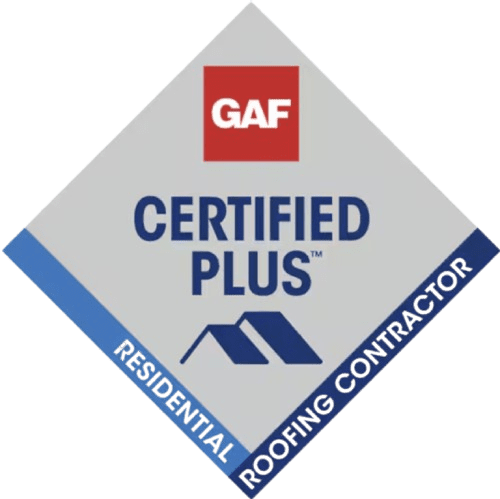Are the gutters on your Maryland home overflowing?
 So, you’re looking to choose the proper gutter size for your home? Well, buckle up and get ready for some gutter talk, don’t worry, I’ll keep it clean; that’s actually a tip, but I’ll get back to that later.
So, you’re looking to choose the proper gutter size for your home? Well, buckle up and get ready for some gutter talk, don’t worry, I’ll keep it clean; that’s actually a tip, but I’ll get back to that later.
Ok, gutters may not be the most exciting topic, but they play a vital role in keeping your home safe from water damage. So, let’s get down and dirty with the details.
First things first, the size of your Rockville, MD home or, more importantly, your roof, is going to have the biggest impact on the size of gutter you need. It does kind of go without saying, bigger roof, bigger gutters. You don’t want those puny gutters to get overwhelmed by all the water runoff, do you? Also, don’t forget about the slope and pitch of your roof. These measurements determine how fast the water will flow off your roof and into the gutters. It’s like a water slide for raindrops and snowmelt!
Let’s talk rain for a second. It’s important to consider the variability of rainfall depending on one’s location. It is essential to select the gutter size that can effectively handle the typical volume of rainwater during heavy storms in your region. You don’t want to be caught in a rainstorm with gutters that can’t handle the deluge. That’s a recipe for disaster, my friends. Think about the potential damage to your roof, foundation, and landscaping. Naturally, no one wants a soggy, and probably muddy, mess on their hands to deal with once the sun comes out.
Residential homes typically require gutters with a width of 5 to 6 inches. If you live in a rainfall hotspot, you might want to up your game with larger gutters. Think 6 inches wide. That’ll keep the water flowing and prevent it from spilling over and ruining your landscaping or worse pooling around the foundation of your home.
It’s also important to consider downspouts when determining gutter size. Downspouts are responsible for carrying the water from the gutters down to the ground or away from the foundation. The number and size of downspouts required depend on the gutter size and the amount of water they need to handle. It’s like the ultimate balancing act.
That’s why it’s advisable to consult with a local professional contractor who specializes in gutter installations. They have the expertise and experience to assess your specific needs for our specific area and recommend the most suitable size for your home.
Ok, so before I conclude it’s worth mentioning that gutter material can make a difference too, believe it or not. For example, the copper gutters American Custom Contractors installs are custom-made and most of the time seamless which makes them less prone to problems that can be caused by ice and snow, such as ice damming. Not to mention they are known to be hardy and longer lasting than your aluminum gutters. Believe it or not, copper, if maintained properly, can outlast your aluminum by 50 years. So, if you’re all about top-notch water management and a little bling for your home, copper might be the way to go.
Okay, last but not least, let’s talk maintenance. You can’t just install those gutters and forget about them. Neglecting gutter maintenance is a slippery slope. Those water heroes need regular cleaning and inspections to prevent clogs and ensure they’re doing their job. No one wants mold growth or water damage creeping into their lives, right? Trust me, it’s a headache you don’t want to deal. So, you might consider gutter covers to prevent clogs, especially in the DMV area where leaves build up in our gutters at lightning speed this time of year. Once they get into those underground drains, they are very hard to clean out.
To wrap it all up, determining the proper gutter size involves considering various factors such as the size of your Rockville home, roof slope, average rainfall, material, and the specific requirements of your region. It’s a big decision with a big impact. So, don’t DIY your gutters. Consult with a pro and keep those gutters clean and they will protect your home from a watery disaster.
Stay warm & dry!
Pssst …. If your interested in knowing more about gutter material options you might be interested in my other post “Pros and Cons of Copper vs Aluminum”.






























